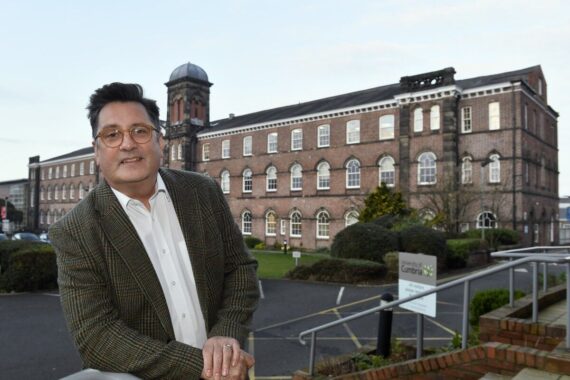There is hope that a new graduate-entry medical school in Carlisle will help to address the GP shortage in the area.
The University of Cumbria and Imperial College London have joined forces to launch the new medical school, which will be based at the new Carlisle Citadels campus.
The new four-year graduate entry programme aims to enrol 50 students annually from 2025, with a total of 200 students once the school is completely up and running.
In regard to what previous studies and results prospective students need, the University of Cumbria told Pulse it is working on its admissions policy, but does not plan to take international students.
Deputy vice-chancellor Professor Brian Webster-Henderson, the university’s strategic lead on the initiative, told local magazine in-cumbria: ‘We want the practitioners to come out and be relevant to the communities where they are working.
‘We really have heard loud and clear from the GPs that actually we need many more generalist skills within the curriculum that are going to be a benefit to the population we serve.’
He said Imperial approached the University of Cumbria to tackle areas of health and social inequality together.
Professor Webster-Henderson said: ‘Part of that, for us at the University of Cumbria, is about positioning ourselves as a key provider to the workforce. One of the areas that we weren’t providing, but which is a huge challenge in Cumbria, is medical practitioners.’
Graduate entry medicine is an accelerated pathway for graduates and degree-holders who want to study medicine, and usually takes four years.
He added: ‘It will be a shortened programme, but the students by nature are going to be more mature, have life experiences, and hopefully will be more likely to stay in the area that they’ve been educated in.’
Graduate entry medicine courses are open to those with a previous bachelor’s degree, achieving a minimum of 2.1. Some schools may accept a 2.2. Many universities require the previous degree to be health-related, but not all. Some graduate courses are open only to students from the UK.
Health Education England (HEE) previously paid GP practices in Cumbria £10,000 to take on new trainees, amid a shortage of available training posts.
This month, the Government said there was ‘no room for flexibility this year’ to increase medical school places and that it was doing ‘lots of things’ to address the problems in general practice.
A record 4,000 GP trainee places have been filled as of November 2021, up on the 3,793 new recruits in 2021.
And UCAS data shows applications to medical schools have significantly increased between 2018 and 2021, including those which have a focus on general practice.


















READERS' COMMENTS [6]
Please note, only GPs are permitted to add comments to articles
This is positive news. “We want the practitioners to come out and be relevant to the communities”.
2 years spent on communication skills and using patient-centered models.
New modules:
A. Why you should not whistleblowe
B. How to do trivial things we never taught you to do, to avoid complaints and the GMC charard
C. How to be mindful with a time waster
D. The inside workings and agenda of NHSE
E. How to code for American insurance companies
Any evidence doctors settle in the area they trained? Thought not. Anecdotally my year dispersed all over Britain.
Just add to that that these fast tracked graduates will have the same exams to pass as the rest. They may have been leaned on to be GPs but they start from the same base and can be what they want to be.
Why would they want to be a GP? Underpaid, overworked and not valued. Wake up GB. I can smell the coffee.
4 years at medical school, plus 2 years as an F1/F2, plus 4 years GP training still equals 10 years.
Whether they become GPs or work in hospitals has nothing to do with their education and everything to do with the terms and conditions of the job. On the current trajectory of he profession, there won’t be any general practice left for them to do.
There are so many doctors who were unsuccessful in RCGP exams . Why don’t use these doctors and retrain them .
Many overseas doctors are here because of spouse train those doctors too on top of 4 year program. It is welcome news
I think there is evidence that enough Drs stay in the area they trained to make it worthwhile placing medical schools in under doctored areas and recruiting from local communities
For goodness sake. The NHS needs to treat its staff better so they don’t leave in droves. No point in turning up the tap to fill the bath when you’ve forgotten to put the plug in…….